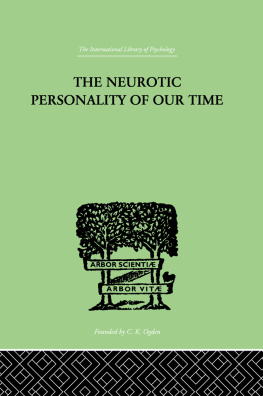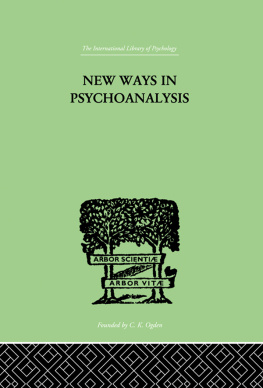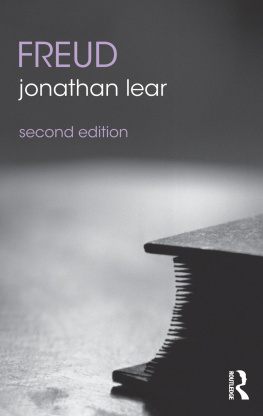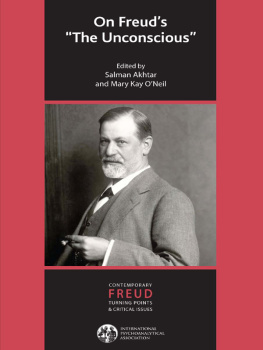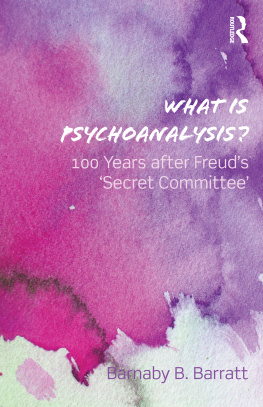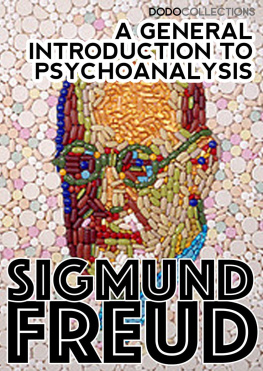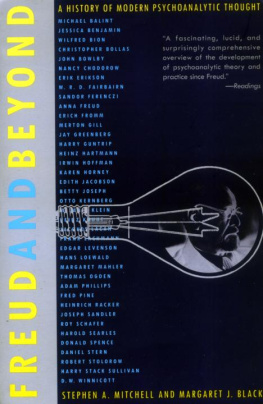The International Library of Psychology
SELF-ANALYSIS

Founded by C. K. Ogden
The International Library of Psychology
PSYCHOANALYSIS
In 28 Volumes
I | The Elements of Practical Psycho-Analysis | Bousfield |
II | A Neglected Complex and its Relation to Freudian Psychology | Bousfield |
III | The Omnipotent Self | Bousfield |
IV | The Social Basis of Consciousness | Burrow |
V | What is Psychoanalysis? | Coriat |
VI | The Psychoanalytic Theory of Neurosis | Fenichel |
VII | The Technique of Psycho-Analysis | Forsyth |
VIII | Leonardo da Vinci | Freud |
IX | Totem and Taboo | Freud |
X | Wit and its Relation to the Unconscious | Freud |
XI | Morbid Fears and Compulsions | Frink |
XII | Facts and Theories of Psychoanalysis | Hendrick |
XIII | Fathers or Sons? | Hopkins |
XIV | Neurosis and Human Growth | Horney |
XV | The Neurotic Personality of Our Time | Horney |
XVI | New Ways in Psychoanalysis | Horney |
XVII | Our Inner Conflicts | Horney |
XVIII | Self-Analysis | Horney |
XIX | Childhood and After | Isaacs |
XX | Social Development in Young Children | Isaacs |
XXI | Problems in Psychopathology | Mitchell |
XXII | The Psychoanalytic Method | Pfister |
XXIII | The Trauma of Birth | Rank |
XXIV | On the Bringing Up of Children | Rickman |
XXV | Conflict and Dream | Rivers |
XXVI | Psychoanalysis and Suggestion Therapy | Stekel |
XXVII | Psychoanalysis and Behaviour | Tridon |
XXVIII | Character and the Unconscious | van der Hoop |
SELF-ANALYSIS
KAREN HORNEY

First published in 1942
by Routledge
Reprinted in 1999, 2002
by Routledge
2 Park Square, Milton Park, Abingdon, Oxon, OX14 4RN
Transferred to Digital Printing 2007
Routledge is an imprint of the Taylor & Francis Group
1942 Karen Horney
All rights reserved. No part of this book may be reprinted or reproduced or utilized in any form or by any electronic, mechanical, or other means, now known or hereafter invented, including photocopying and recording, or in any information storage or retrieval system, without permission in writing from the publishers.
The publishers have made every effort to contact authors/copyright holders of the works reprinted in the International Library of Psychology.
This has not been possible in every case, however, and we would welcome correspondence from those individuals/companies we have been unable to trace.
These reprints are taken from original copies of each book. In many cases the condition of these originals is not perfect. The publisher has gone to great lengths to ensure the quality of these reprints, but wishes to point out that certain characteristics of the original copies will, of necessity, be apparent in reprints thereof.
British Library Cataloguing in Publication Data
A CIP catalogue record for this book is available from the British Library
Self-Analysis
ISBN 0415-21099-2
Psychoanalysis: 28 Volumes
ISBN 0415-21132-8
The International Library of Psychology: 204 Volumes
ISBN 0415-19132-7
CONTENTS
P sychoanalysis first developed as a method of therapy in the strict medical sense. Freud had discovered that certain circumscribed disorders that have no discernible organic basissuch as hysterical convulsions, phobias, depressions, drug addictions, functional stomach upsetscan be cured by uncovering the unconscious factors that underlie them. In the course of time disturbances of this kind were summarily called neurotic.
After a whilewithin the last thirty yearspsychiatrists realized that neurotic people not only suffer from these manifest symptoms but also are considerably disturbed in all their dealings with life. And they also recognized the fact that many people have personality disorders without showing any of the definite symptoms that had previously been regarded as characteristic of neuroses. In other words, it gradually became more apparent that in neuroses symptoms may or may not be present but personality difficulties are never lacking. The conclusion was thus inevitable that these less specific difficulties constitute the essential core of neuroses.
The recognition of this fact was exceedingly constructive in the development of psychoanalytical science, not only increasing its efficacy but also enlarging its scope. Manifest character disorders, such as a compulsive indecision, a repeated wrong choice of friends or lovers, gross inhibitions toward work, became as much an object of analysis as the gross clinical symptoms. Nevertheless the focus of interest was not the personality and its best possible development; the ultimate purpose was the understanding and eventual removal of the obvious disorders, and analysis of the character was only a means toward this end. It was almost an accidental by-product if in consequence of such work a persons whole development took a better course.
Psychoanalysis is still and will remain a method of therapy for specific neurotic disorders. But the fact that it can be an aid to general character development has come to assume a weight of its own. To an increasing degree people turn to analysis not because they suffer from depressions, phobias, or comparable disorders but because they feel they cannot cope with life or feel that factors within themselves are holding them back or injuring their relationships with others.
As will happen when any new vista is opened up, the significance of this new orientation was at first overrated. It was frequently declared, and the opinion is still widespread, that analysis is the only means of furthering personality growth. Needless to say, that is not true. Life itself is the most effective help for our development. The hardships that life forces upon usa necessity to leave ones country, organic illness, periods of solitudeand also its giftsa good friendship, even a mere contact with a truly good and valuable human being, co-operative work in groupsall such factors can help us reach our full potential. Unfortunately, the assistance thus offered has certain disadvantages: the beneficent factors do not always come at the time we need them; the hardships may not only be a challenge to our activity and courage but surpass our available strength and merely crush us; finally, we may be too entangled in psychic difficulties to be able to utilize the help offered by life. Since psychoanalysis has not these disadvantagesthough it has othersit can legitimately take its place as one specific means in the service of personal development.
Next page

